
Japan’s mini theatres have been in a status of crisis since the pandemic. Already struggling under the weight of changing times the immediate restrictions pushed many over the edge unable to entice older regulars back into screens or find a new audience among the young. This is doubly bad news for the industry as a whole as it’s mini theatres that allow indie films the platform they need to succeed and without them there is little avenue for films produced outside of the mainstream. Like Lim Kah-Wai’s Your Lovely Smile, Hideo Jojo’s Twilight Cinema Blues (銀平町シネマブルース, Ginpeicho Cinema Blues) similarly extols the virtues of the mini theatre which is not just somewhere to watch films but a place to belong that has room for anyone and everyone that wants to be there.
That’s more than true for Takeshi (Keisuke Koide), a struggling man approaching middle age who’s become near destitute and is almost sucked into a welfare scam targeting the homeless by a pair of shady yakuza claiming they run an NPO. At the orientation he runs into Kajiwara (Mitsuru Fukikoshi ), the owner of a mini theatre who declines to join the gangsters’ scheme but offers Takeshi the opportunity to bunk in his storeroom while working part-time little knowing that to Takeshi this particular mini cinema is like a return to source allowing him to rediscover his love of film.
But the mini cinema itself is also struggling. They simply don’t get bums on seats and Kajiawa is behind on paying his staff. Though they have a small collection of regulars, they aren’t enough to keep the lights on on their own. Even the projectionist is thinking he’ll probably retire along with the machine. Unable to afford new films, Kajiawara relies on cheap and easily licensable classics such as old favourite Casablanca but is largely unable to see away out of his situation while feeling guilty over ending what was effectively a family business and local landmark. The building’s 60th anniversary, 60 being a symbolic number in Japanese culture as it represents a full turn of the Chinese zodiac and literal new start, presents an opportunity to both Kajiawara and Takeshi to begin to move forward by renewing their faith in cinema.
The faith of Takeshi’s homeless friend Sato (Shohei Uno) needed no renewing. Though he had nothing, the ability to see a film twice a month made him feel human while the community at the cinema is perhaps the only one that still accepts him. He offers a small prayer after every film, and instructs Takeshi that he should the same. But his openhearted faith is also his undoing, allowing him to fall for the yakuza scam little realising they’ll force him to work for them taking half of the social security payments they helped him sign up for in the process. In the outside world, men like Sato find only exploitation and prejudice with cinema their only refuge.
Then again, filmmaking isn’t easy. A young woman who desperately wanted her debut film to play in her hometown cinema has based her first feature on the life of her father, a failed film director who drank himself to death (in a neat allusion to Oshima’s Cruel Story of Youth, her film’s title literally translates as “cruel story of a director”). Similarly, the suicide of a much loved assistant director has prevented those around him from moving on, preoccupied with the shock his death caused them in its suddenness and lack of obvious cause. They blame themselves sending their lives into a downward spiral that results in crushing financial debts and the end of a marriage. In some ways, the film is an ode to the ADs who keep everything running, including on occasions the director, and are in a sense the custodians of filmmaking.
Still, it’s clear that not everything can seamlessly repaired. Times have moved on even if some have been left behind and you can’t always simply reclaim what you’ve lost, but you can always start again with another spin of the wheel and make the most of what you’ve got. It won’t be the same, but that doesn’t mean it won’t be good. Jojo’s heartwarming tale of cinema has an undercurrent of darkness and despair running beneath, but also suggests that the silver screen can be a beacon hope when the world is at its bleakest and not least for those whose existence largely lies behind it.
Screened as part of this year’s Japan Foundation Touring Film Programme.
Original trailer (English subtitles)


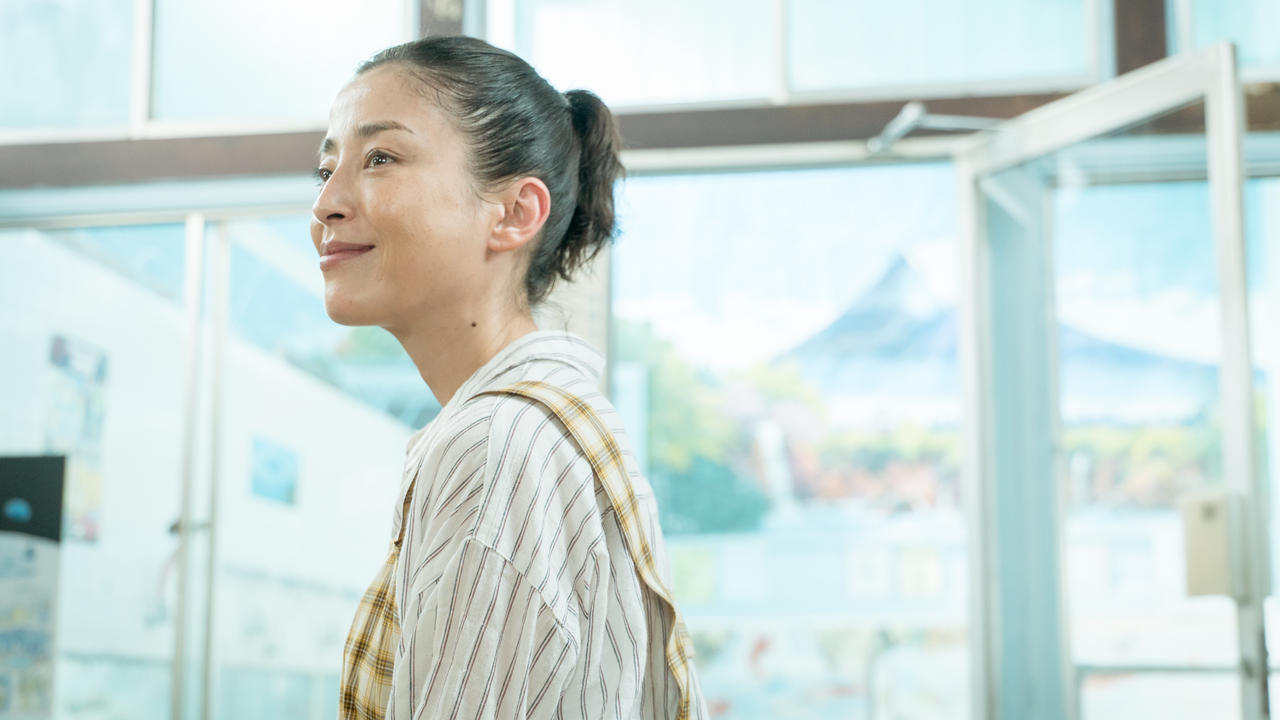 The
The 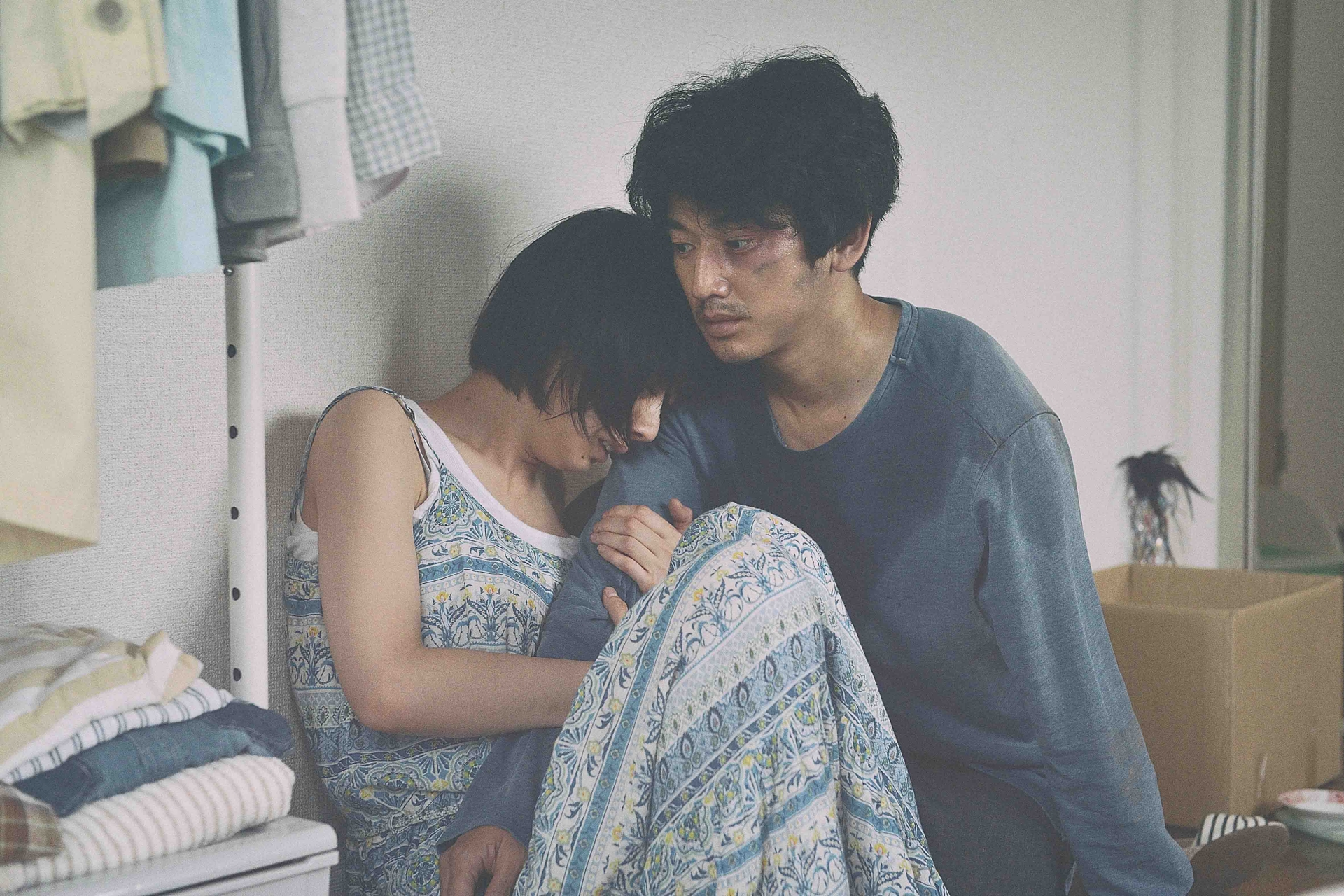 Toma Ikuta stars as a failed journalist working in a small factory who befriends an introverted co-worker (Eita) only to begin to suspect that he may be connected to a series of child murders 17 years previously. One of two films released by Takahisa Zeze (
Toma Ikuta stars as a failed journalist working in a small factory who befriends an introverted co-worker (Eita) only to begin to suspect that he may be connected to a series of child murders 17 years previously. One of two films released by Takahisa Zeze ( Charming fantasy adventure from Takashi Yamazaki adapting the popular 80s manga by Ryohei Saigan in which a newlywed eccentric author finds himself travelling to the underworld to retrieve his wife who has been taken there as a result of a bizarre clerical error (and a little yokai interference).
Charming fantasy adventure from Takashi Yamazaki adapting the popular 80s manga by Ryohei Saigan in which a newlywed eccentric author finds himself travelling to the underworld to retrieve his wife who has been taken there as a result of a bizarre clerical error (and a little yokai interference). 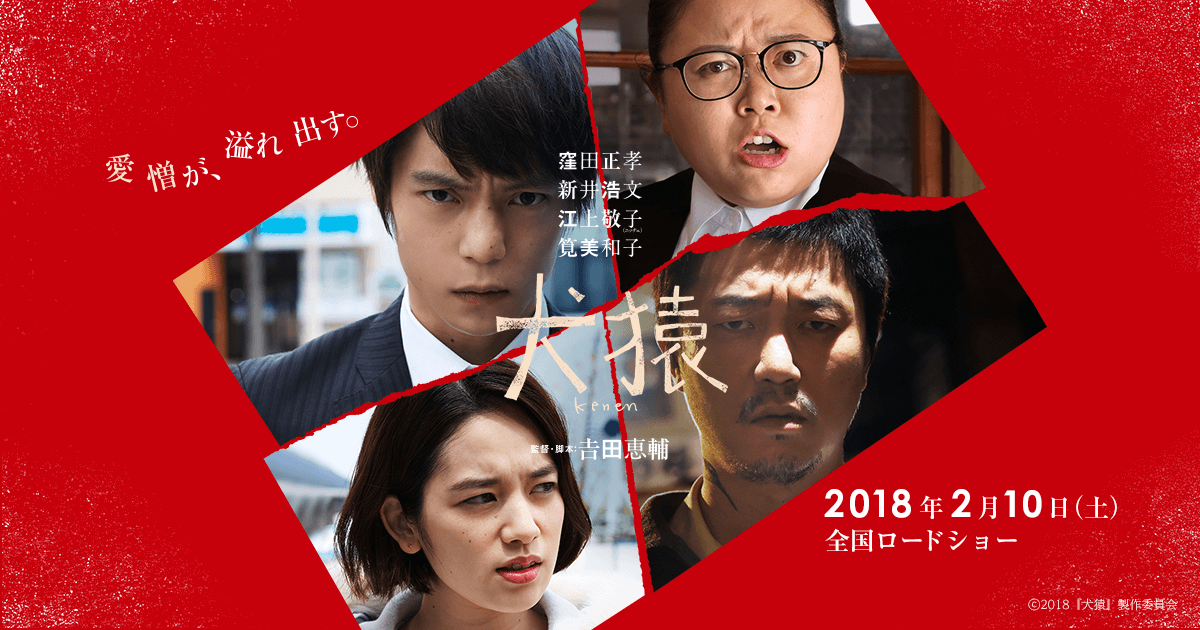 Comedy drama from
Comedy drama from  Tsuchida (Asami Usuda) has decided to financially support her singer-songwriter boyfriend Seiichi (Taiga) but he doesn’t know she’s supplementing her income with a part-time job at hostess bar to make ends meet. Meanwhile, her head is turned by an old flame (Joe Odagiri) in Masanori Tominaga’s adaptation of the popular manga by Kiriko Nananan.
Tsuchida (Asami Usuda) has decided to financially support her singer-songwriter boyfriend Seiichi (Taiga) but he doesn’t know she’s supplementing her income with a part-time job at hostess bar to make ends meet. Meanwhile, her head is turned by an old flame (Joe Odagiri) in Masanori Tominaga’s adaptation of the popular manga by Kiriko Nananan.  Intensely shy and socially awkward, 24-year-old Yoshika (Mayu Matsuoka) lives in a fantasy world and spends her free time engaging in her favourite hobby of looking up extinct animals on the internet. Harbouring a long standing crush on a middle-school classmate she nicknames “Ichi” (no. 1), her existence is shaken by the unexpected attention of a colleague she refers to as “Ni” (no. 2). An ultimately uplifting yet sometimes heartbreaking tale of learning to forget about anxiety and just live anyway from genre veteran Akiko Ohku.
Intensely shy and socially awkward, 24-year-old Yoshika (Mayu Matsuoka) lives in a fantasy world and spends her free time engaging in her favourite hobby of looking up extinct animals on the internet. Harbouring a long standing crush on a middle-school classmate she nicknames “Ichi” (no. 1), her existence is shaken by the unexpected attention of a colleague she refers to as “Ni” (no. 2). An ultimately uplifting yet sometimes heartbreaking tale of learning to forget about anxiety and just live anyway from genre veteran Akiko Ohku. 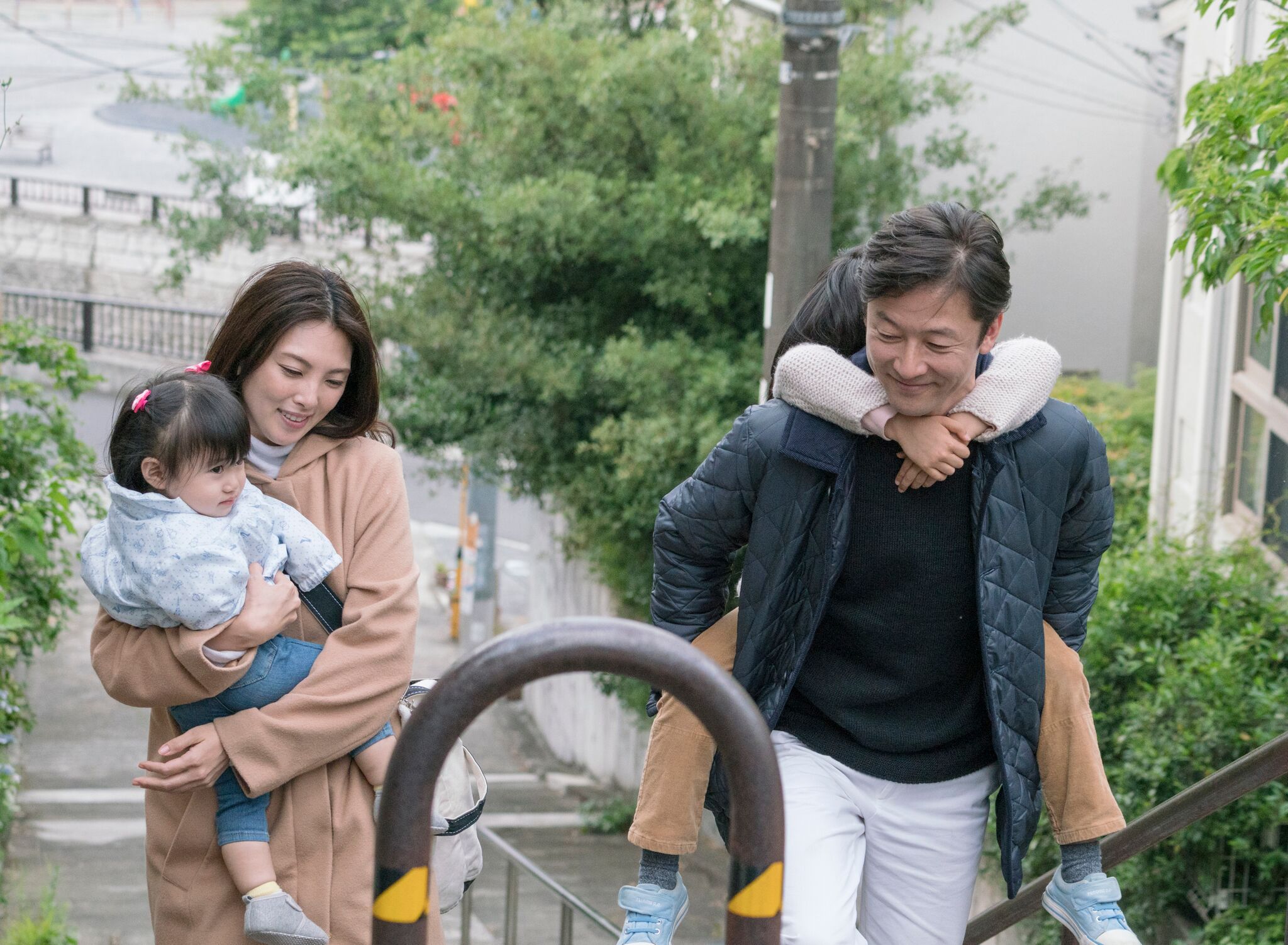 Tadanobu Asano stars as a man who’s taken the unusual decision to prioritise family life over career but finds himself conflicted when his second wife reveals she is pregnant with their first child in Yukiko Mishima’s empathic family drama.
Tadanobu Asano stars as a man who’s taken the unusual decision to prioritise family life over career but finds himself conflicted when his second wife reveals she is pregnant with their first child in Yukiko Mishima’s empathic family drama. 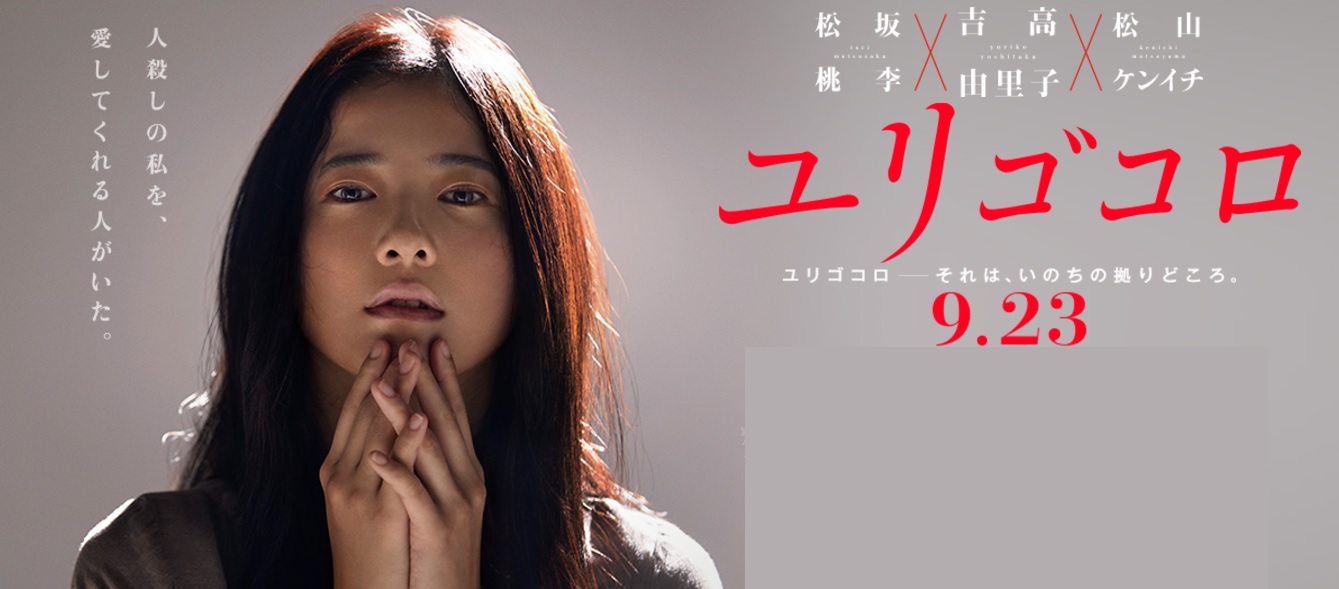 Ryosuke’s life is pretty great. He’s about to open his own restaurant and marry his beautiful fiancée Misako, but his happiness is soon ended when his father is diagnosed with late stage pancreatic cancer. Going through his belongings, Ryosuke finds a worrying entry in his father’s diary which implies he may have committed a murder. To make matters worse, Misako suddenly disappears without trace. Naoto Kumazawa adapts the bestselling novel by Mahokaru Numata.
Ryosuke’s life is pretty great. He’s about to open his own restaurant and marry his beautiful fiancée Misako, but his happiness is soon ended when his father is diagnosed with late stage pancreatic cancer. Going through his belongings, Ryosuke finds a worrying entry in his father’s diary which implies he may have committed a murder. To make matters worse, Misako suddenly disappears without trace. Naoto Kumazawa adapts the bestselling novel by Mahokaru Numata. Inspired by a viral news story, Masakazu Fukatsu’s cheerful drama stars former hip hop idol Toshimi Watanabe in a role somewhat echoing his own life seeing as he too published a best selling book filled with pictures of the bento he lovingly crafted for his teenage son. Here he plays a divorced dad doing his best to master the traditionally female art of homemade lunch boxes.
Inspired by a viral news story, Masakazu Fukatsu’s cheerful drama stars former hip hop idol Toshimi Watanabe in a role somewhat echoing his own life seeing as he too published a best selling book filled with pictures of the bento he lovingly crafted for his teenage son. Here he plays a divorced dad doing his best to master the traditionally female art of homemade lunch boxes. Capturing Dad’s Ryota Nakano turns his attention mum! Rie Miyazawa stars as a struggling recently single mother whose husband has run off with another woman that he supposedly got pregnant during a drunken one night stand. Diagnosed with terminal cancer, she sets herself to repairing her fractured family while also resurrecting the family bathhouse in the process.
Capturing Dad’s Ryota Nakano turns his attention mum! Rie Miyazawa stars as a struggling recently single mother whose husband has run off with another woman that he supposedly got pregnant during a drunken one night stand. Diagnosed with terminal cancer, she sets herself to repairing her fractured family while also resurrecting the family bathhouse in the process. 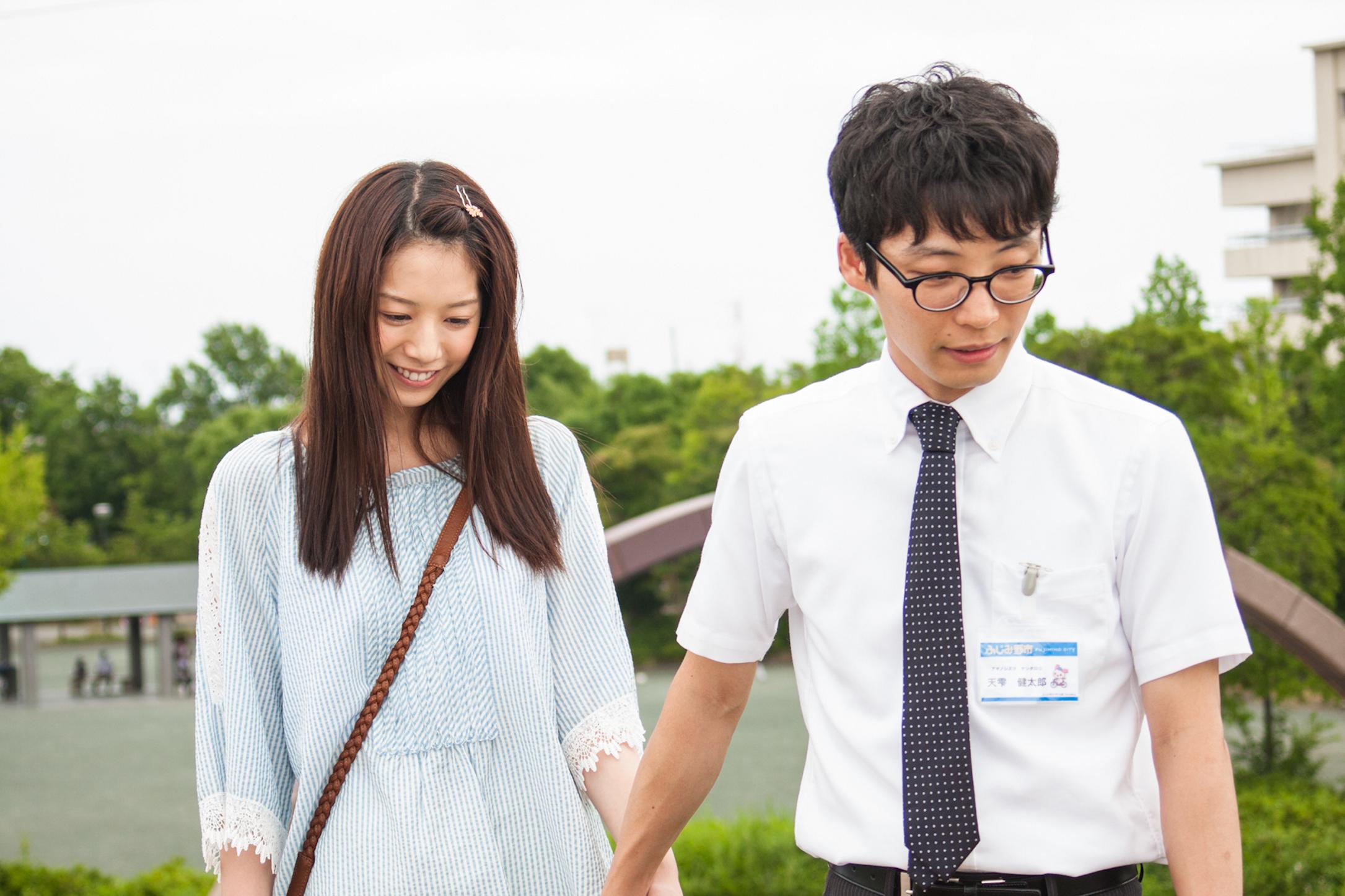 Kentaro, 30-something and single, lives a solitary and isolated life, showing little sign of finding a wife and settling down while his career continues to stagnate. Fearing he will be alone all his life, his parents decide to go to a support group for the similarly afflicted hoping to find a candidate for an arranged marriage. They find only one – Naoko, the daughter of a high ranking salaryman. Naoko’s parents do not disclose the fact that their daughter is blind and also disapprove of Kentaro whom they regard as socially inferior. Nevertheless the pair meet and fall in love but can they overcome the various obstacles to their romance?
Kentaro, 30-something and single, lives a solitary and isolated life, showing little sign of finding a wife and settling down while his career continues to stagnate. Fearing he will be alone all his life, his parents decide to go to a support group for the similarly afflicted hoping to find a candidate for an arranged marriage. They find only one – Naoko, the daughter of a high ranking salaryman. Naoko’s parents do not disclose the fact that their daughter is blind and also disapprove of Kentaro whom they regard as socially inferior. Nevertheless the pair meet and fall in love but can they overcome the various obstacles to their romance? A small town decides to join a scheme to rehome ex-cons in order to combat rural depopulation but fearing that the local community might not accept the new arrivals if they knew where they came from, the authorities decide to keep it a secret. Prejudice and pragmatism go head to head in Daihachi Yoshida’s adaptation of the manga by Yamagami Tatsuhiko and Igarashi Mikio.
A small town decides to join a scheme to rehome ex-cons in order to combat rural depopulation but fearing that the local community might not accept the new arrivals if they knew where they came from, the authorities decide to keep it a secret. Prejudice and pragmatism go head to head in Daihachi Yoshida’s adaptation of the manga by Yamagami Tatsuhiko and Igarashi Mikio. 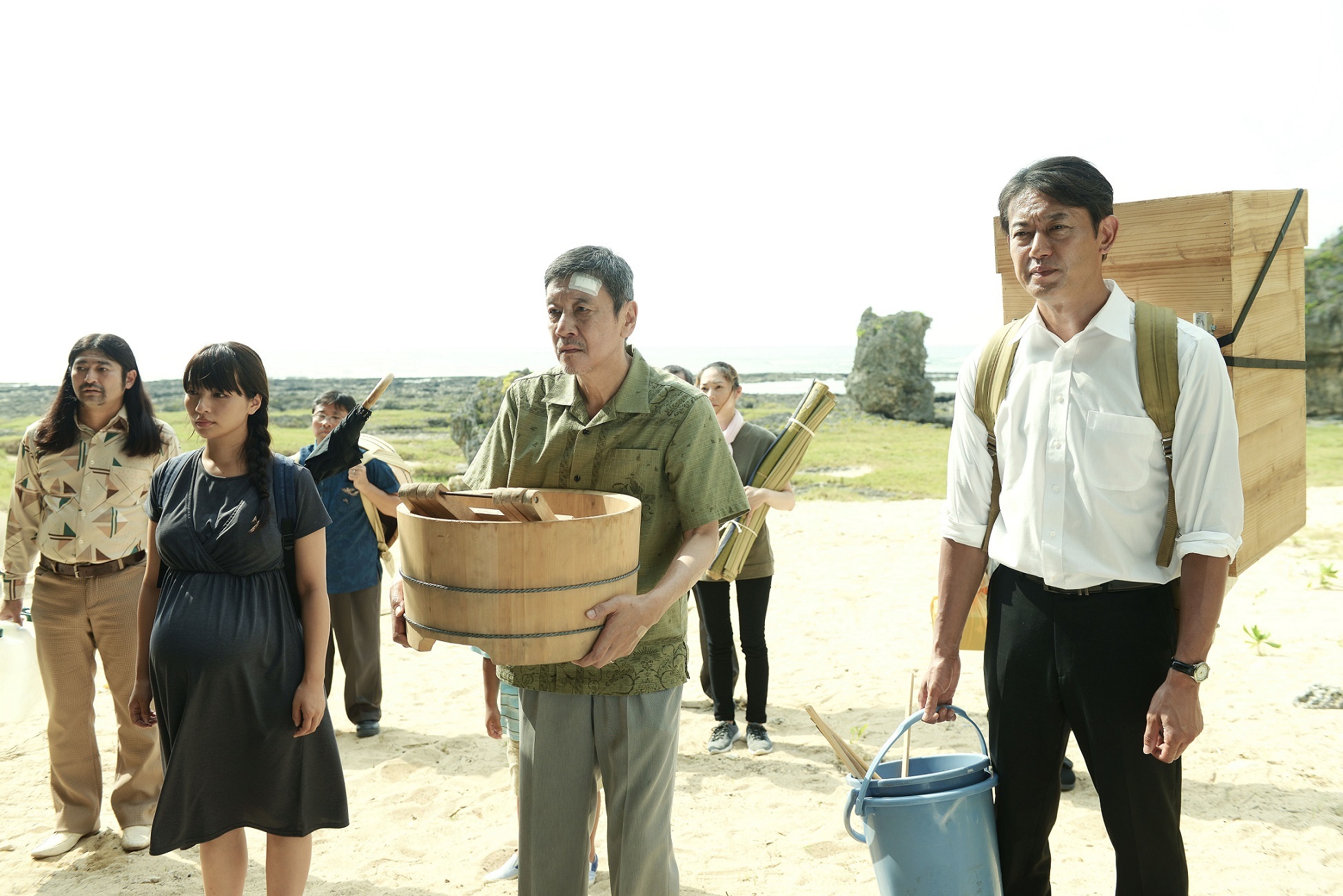 Unmarried pregnant daughter Yuko scandalises her community when she returns home to participate in the bone washing ritual in the second feature from Okinawan comedian Toshiyuki Teruya.
Unmarried pregnant daughter Yuko scandalises her community when she returns home to participate in the bone washing ritual in the second feature from Okinawan comedian Toshiyuki Teruya.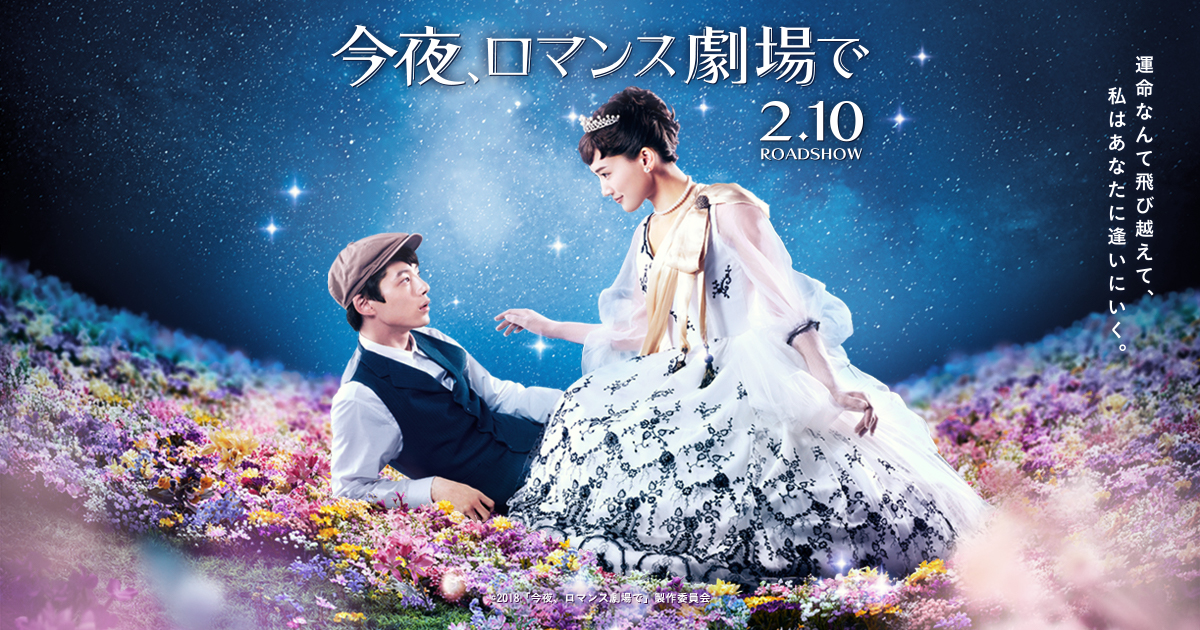 Haruka Ayase and Kentaro Sakaguchi star in a glitzy tribute to the world of golden age cinema! Sakaguchi plays a struggling assistant director failing to make it in the rapidly declining ’60s film industry while dreaming black and white dreams of a more glamorous era. Then, to his surprise, his favourite leading lady steps out of the silver screen and into his technicolor world…
Haruka Ayase and Kentaro Sakaguchi star in a glitzy tribute to the world of golden age cinema! Sakaguchi plays a struggling assistant director failing to make it in the rapidly declining ’60s film industry while dreaming black and white dreams of a more glamorous era. Then, to his surprise, his favourite leading lady steps out of the silver screen and into his technicolor world… Classic from Heinosuke Gosho centring on a collection of people living in a shared house and attempting to survive in the complicated post-war landscape. Ogata (Ken Uehara) is happily married to Hiroko (Kinuyo Tanaka) but begins to doubt her when he learns that she has secretly taken a job at the bicycle races to supplement the family income while the unexpected arrival of an abandoned baby raises another series of questions.
Classic from Heinosuke Gosho centring on a collection of people living in a shared house and attempting to survive in the complicated post-war landscape. Ogata (Ken Uehara) is happily married to Hiroko (Kinuyo Tanaka) but begins to doubt her when he learns that she has secretly taken a job at the bicycle races to supplement the family income while the unexpected arrival of an abandoned baby raises another series of questions. 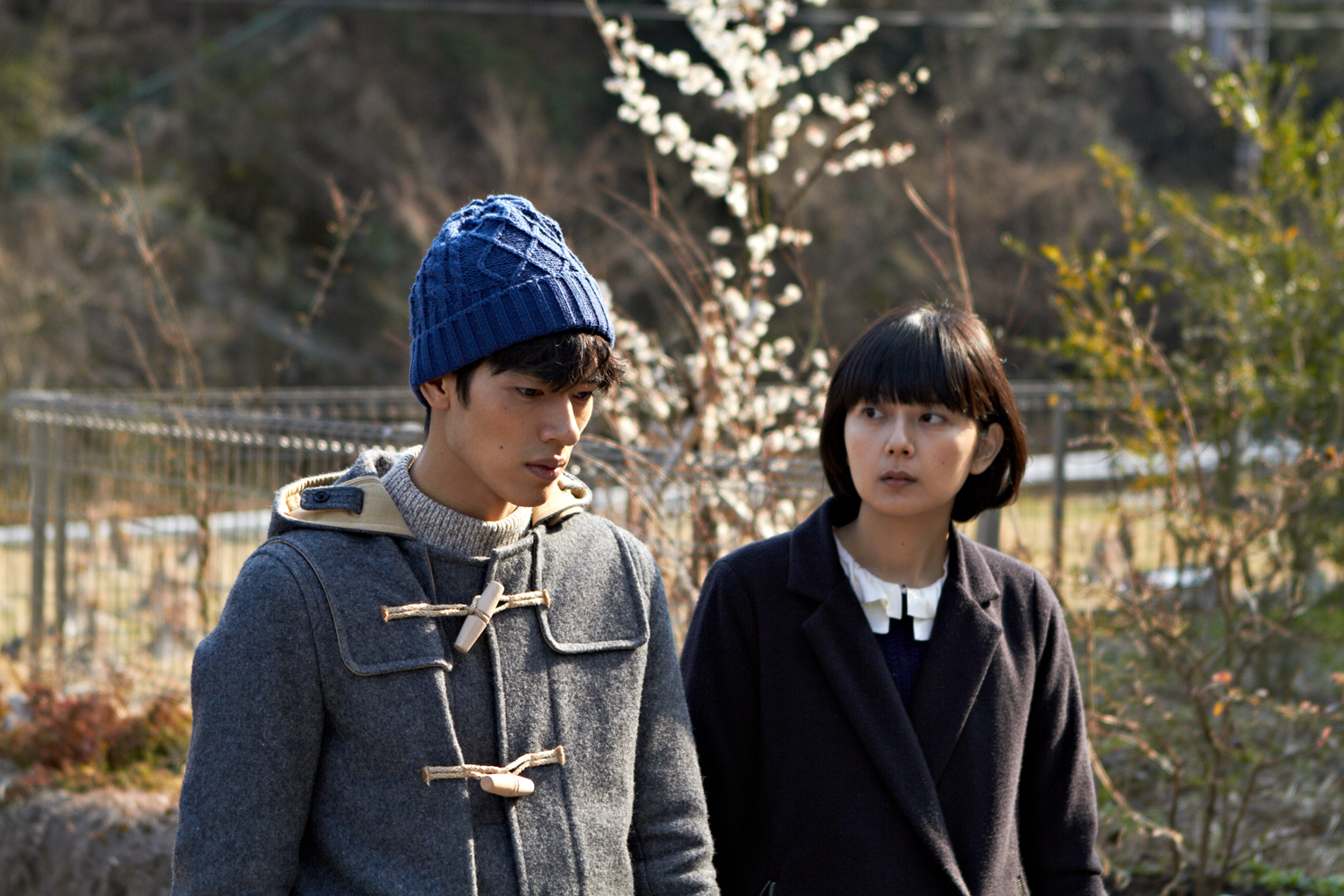 Midori and Masao are 28 years old and they’ve been a couple for four years. With the fire going out of their relationship they consider breaking up but then Midori discovers she is pregnant. Shotgun wedding in the offing, impending parenthood begins to bring them closer together as they finally take the time to get to know each other in the second feature from Yukiko Sode.
Midori and Masao are 28 years old and they’ve been a couple for four years. With the fire going out of their relationship they consider breaking up but then Midori discovers she is pregnant. Shotgun wedding in the offing, impending parenthood begins to bring them closer together as they finally take the time to get to know each other in the second feature from Yukiko Sode.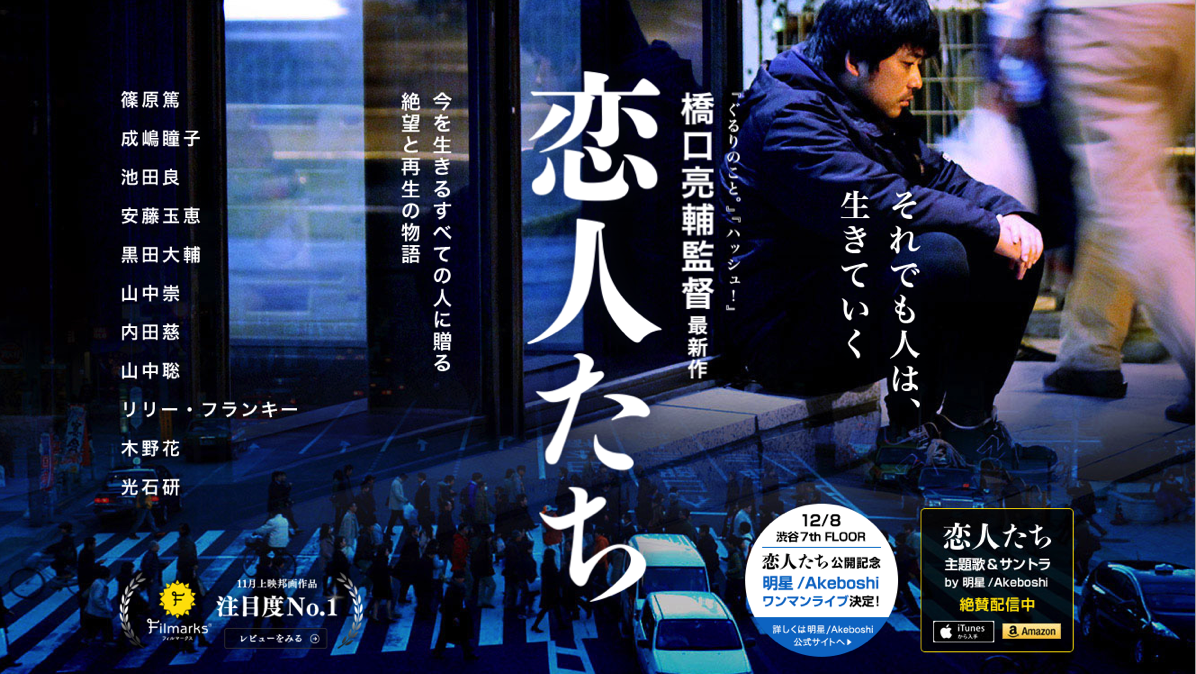 The most recent film from
The most recent film from 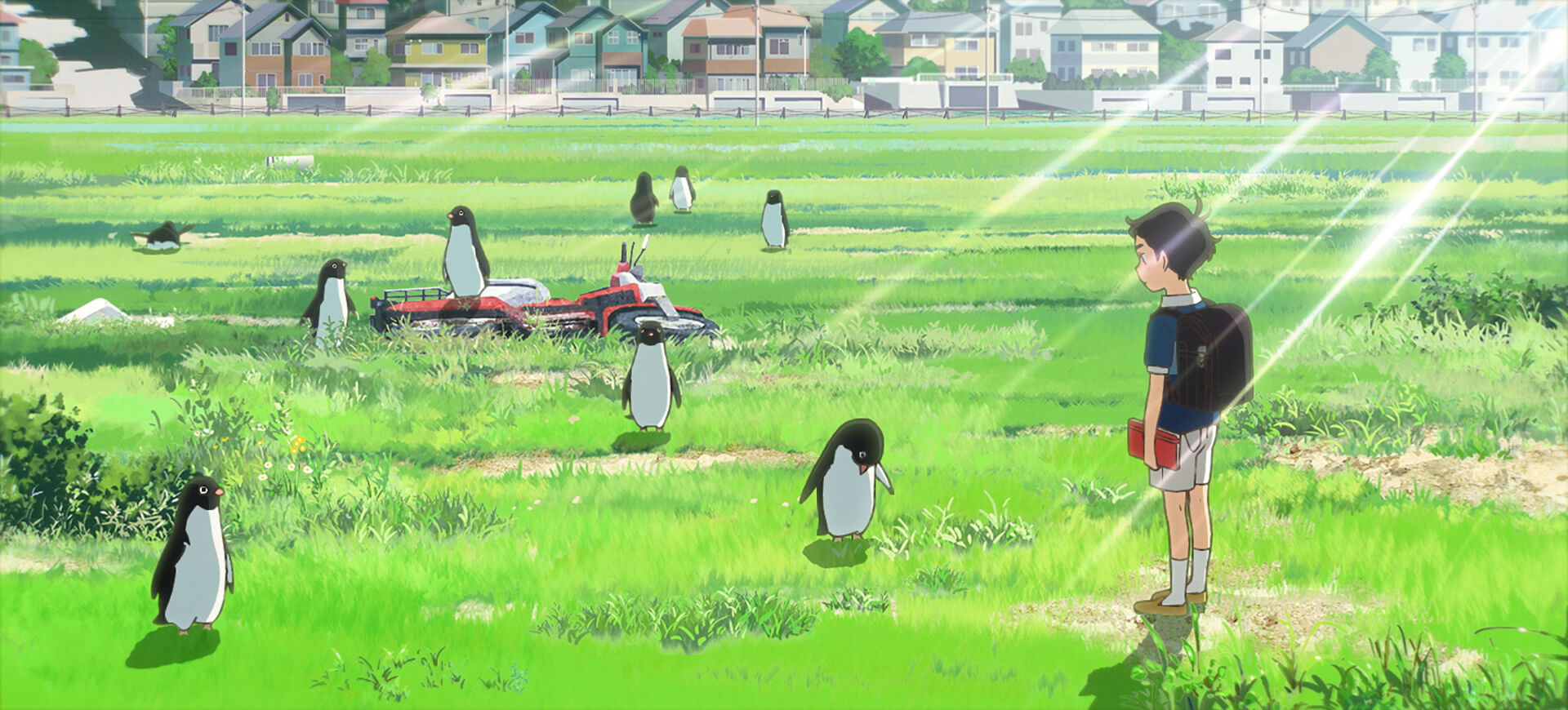 A hyperrational 10-year-old is puzzled by the sudden appearance of a bunch of random penguins in the middle of a hot Japanese summer and tries to solve the mystery all while nursing an adolescent crush on a pretty dental receptionist in Hiroyasu Ishida’s adaptation of the Tomihiko Morimi novel.
A hyperrational 10-year-old is puzzled by the sudden appearance of a bunch of random penguins in the middle of a hot Japanese summer and tries to solve the mystery all while nursing an adolescent crush on a pretty dental receptionist in Hiroyasu Ishida’s adaptation of the Tomihiko Morimi novel. 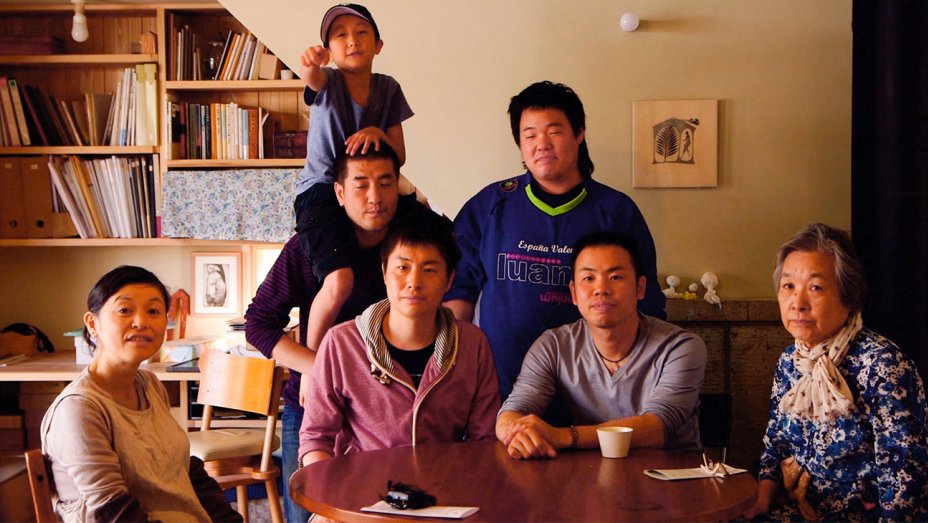 Love Hotel’s Hikaru Toda reunites with Fumi and Kazu who run a law firm in Japan specialising in minority issues and particularly those of the LGBT community.
Love Hotel’s Hikaru Toda reunites with Fumi and Kazu who run a law firm in Japan specialising in minority issues and particularly those of the LGBT community. 


 Heart rending animation inspired by Kenji Miyazawa’s classic Night on the Galactic Railroad. Brothers Junpei and Kanta face the loss of their home when the northern island of Shikotan is reclaimed by Russian troops in the aftermath of the second world war.
Heart rending animation inspired by Kenji Miyazawa’s classic Night on the Galactic Railroad. Brothers Junpei and Kanta face the loss of their home when the northern island of Shikotan is reclaimed by Russian troops in the aftermath of the second world war. Charming puppet animation in which Chieri, who has recently lost her father, develops an intense bond with her stuffed toy, Cherry. Travelling to her grandmother’s house for her father’s funeral, Chieri experiences a fantastic adventure which helps her to cope with grief and fear of the future.
Charming puppet animation in which Chieri, who has recently lost her father, develops an intense bond with her stuffed toy, Cherry. Travelling to her grandmother’s house for her father’s funeral, Chieri experiences a fantastic adventure which helps her to cope with grief and fear of the future.







 A summery treat indeed – Takeshi Kitano’s whimsical gem sees a grumpy middle-aged man forced to take a lonely little boy on a roadtrip to track down his long absent mum whilst also dealing with his own complicated family legacies.
A summery treat indeed – Takeshi Kitano’s whimsical gem sees a grumpy middle-aged man forced to take a lonely little boy on a roadtrip to track down his long absent mum whilst also dealing with his own complicated family legacies. 

 Mitsuko, a cheerful woman who likes to help people, has returned to Japan pregnant, broke, and alone after being abandoned by her American boyfriend. Going where the wind blows her, Mitsuko ends up returning to her home town and letting it all hang out while she solves everyone else’s problems in one of Yuya Ishii’s early whimsical comedies.
Mitsuko, a cheerful woman who likes to help people, has returned to Japan pregnant, broke, and alone after being abandoned by her American boyfriend. Going where the wind blows her, Mitsuko ends up returning to her home town and letting it all hang out while she solves everyone else’s problems in one of Yuya Ishii’s early whimsical comedies.
 The
The 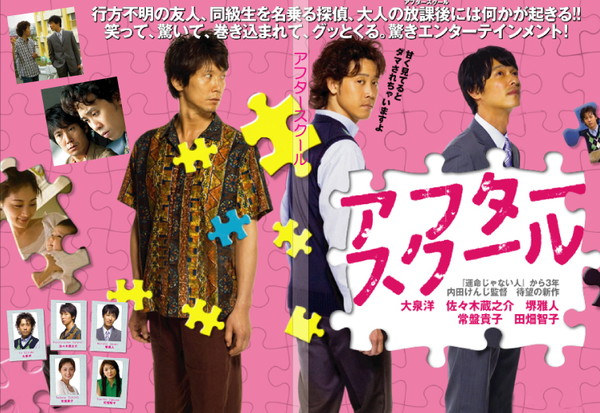 Yo Oizumi stars as a high school teacher investigating the disappearance of a friend in another darkly comic, twist filled farce from Kenji Uchida (
Yo Oizumi stars as a high school teacher investigating the disappearance of a friend in another darkly comic, twist filled farce from Kenji Uchida ( Kazuya Shiraishi (
Kazuya Shiraishi (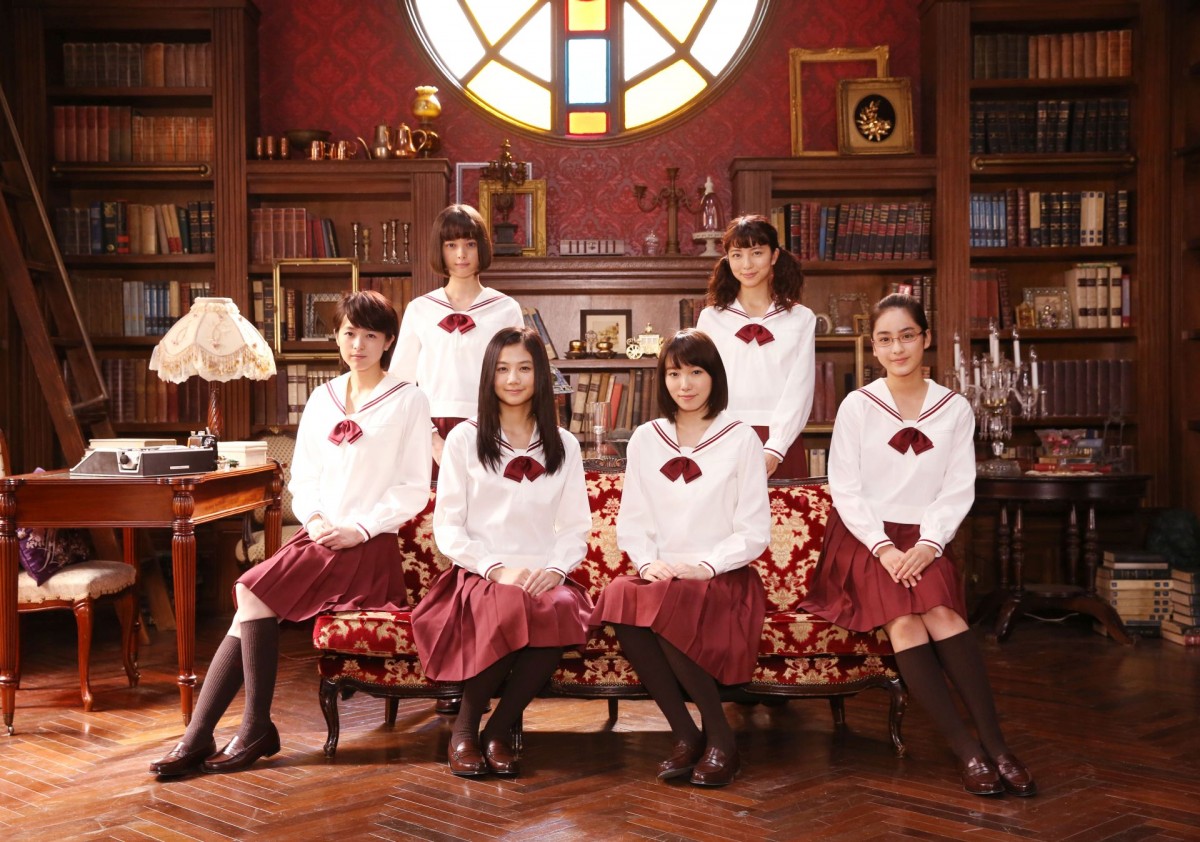 When a schoolgirl falls off a roof foul play is suspected. Who better to investigate than her fellow members of the literature club at an elite academy catering to the daughters of the rich and famous?
When a schoolgirl falls off a roof foul play is suspected. Who better to investigate than her fellow members of the literature club at an elite academy catering to the daughters of the rich and famous? A young reporter (Satoshi Tsumabuki) investigates the brutal murder of a model family whilst trying to support his younger sister (Hikari Mitsushima) who is currently in prison for child neglect while his nephew remains in critical condition in hospital. Interviewing friends and acquaintances of the deceased, disturbing truths emerge concerning the systemic evils of social inequality.
A young reporter (Satoshi Tsumabuki) investigates the brutal murder of a model family whilst trying to support his younger sister (Hikari Mitsushima) who is currently in prison for child neglect while his nephew remains in critical condition in hospital. Interviewing friends and acquaintances of the deceased, disturbing truths emerge concerning the systemic evils of social inequality.  Based on a best selling romantic novel which captured the hearts of readers across Japan, Initiation Love sets out to expose the dark and disturbing underbelly of real life romance by completely reversing everything you’ve just seen in a gigantic twist five minutes before the film ends…
Based on a best selling romantic novel which captured the hearts of readers across Japan, Initiation Love sets out to expose the dark and disturbing underbelly of real life romance by completely reversing everything you’ve just seen in a gigantic twist five minutes before the film ends… A young woman goes missing and unwittingly becomes the face of a social movement in Daigo Matsui’s anarchic examination of a misogynistic society.
A young woman goes missing and unwittingly becomes the face of a social movement in Daigo Matsui’s anarchic examination of a misogynistic society. A brother and sister are orphaned after a natural disaster and taken in by relatives but struggle to come to terms with the aftermath of such great loss.
A brother and sister are orphaned after a natural disaster and taken in by relatives but struggle to come to terms with the aftermath of such great loss.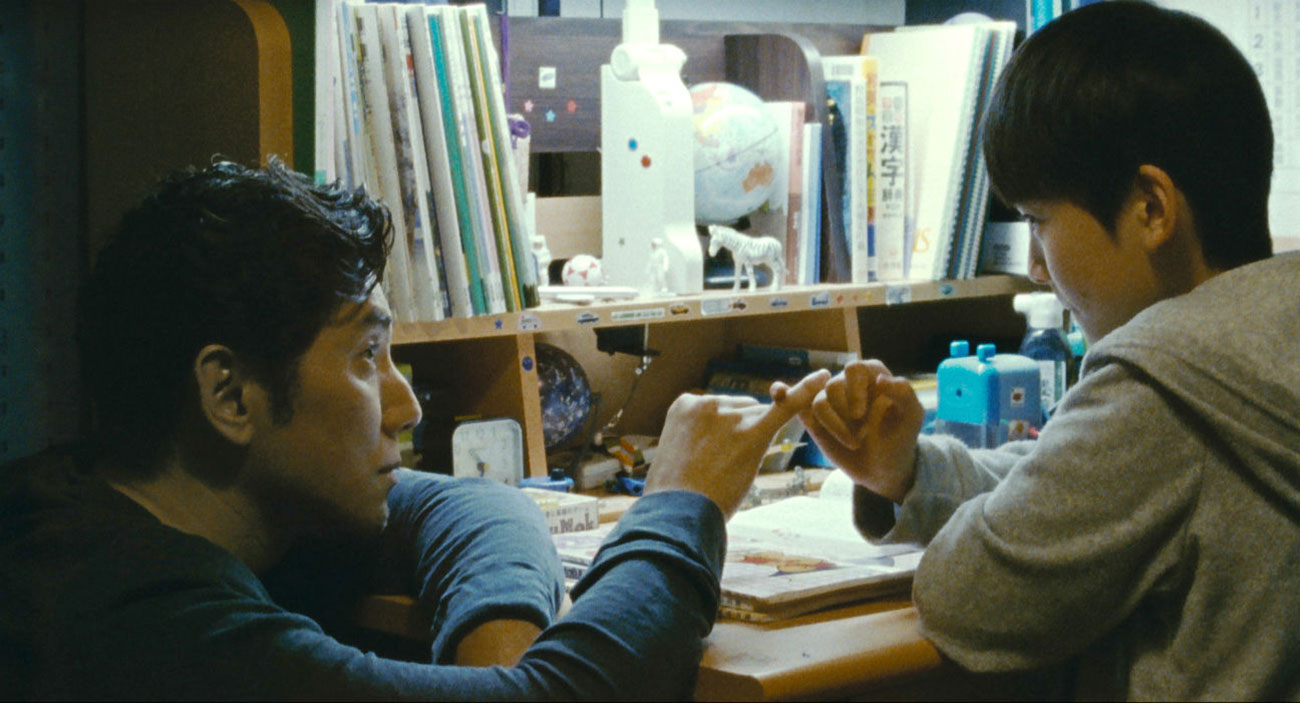 Miwa Nishikawa adapts her own novel in which a self-centred novelist is forced to face his own delusions when his wife is killed in a freak bus accident.
Miwa Nishikawa adapts her own novel in which a self-centred novelist is forced to face his own delusions when his wife is killed in a freak bus accident. 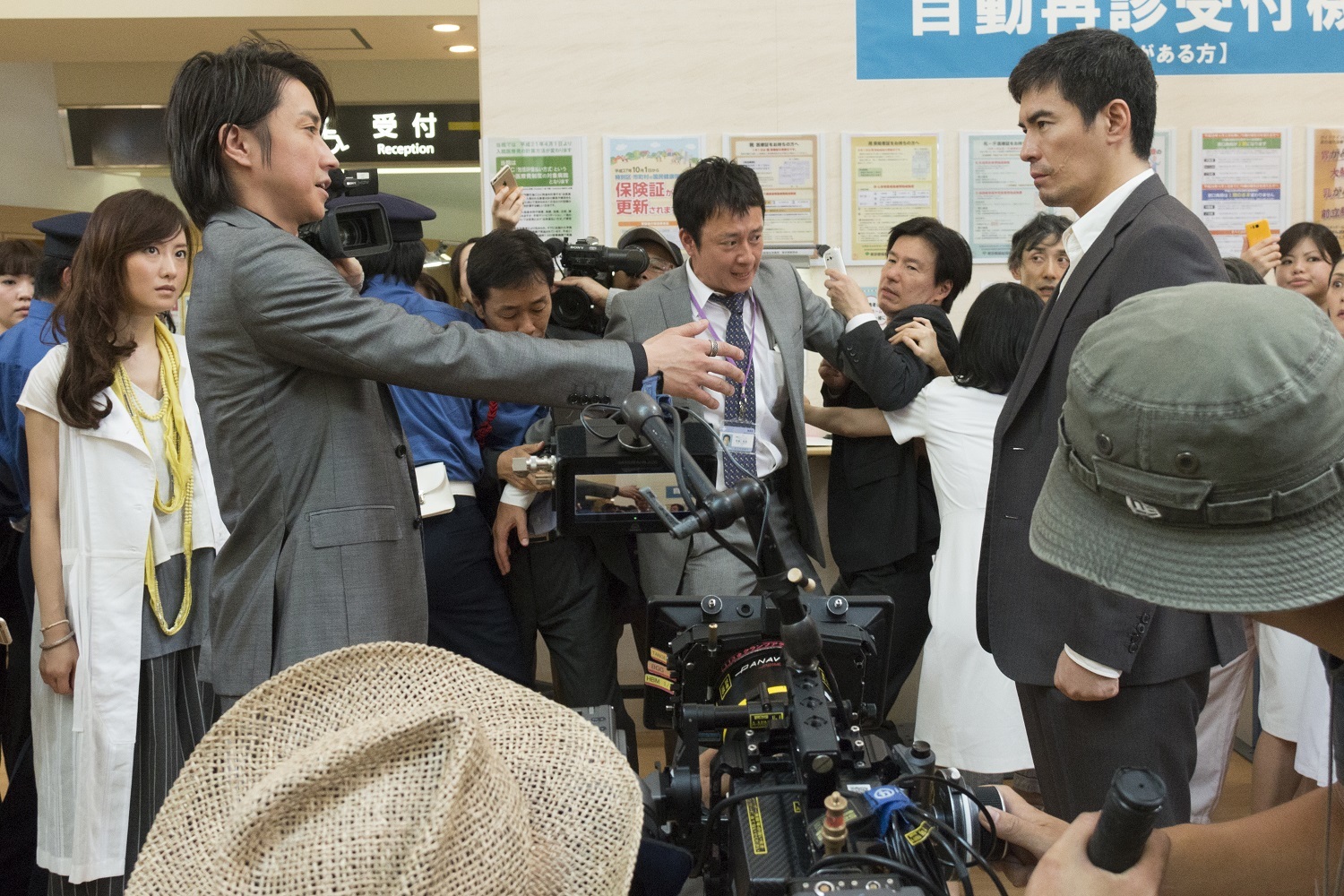 When the statute of limitations passes on a series of unsolved murders, a mysterious man (Tatsuya Fujiwara) suddenly comes forward and confesses while the detective (Hideaki Ito) who is still haunted by his inability to catch the killer has his doubts in Yu Irie’s adaptation of Jung Byoung-Gil’s Korean crime thriller Confession of Murder.
When the statute of limitations passes on a series of unsolved murders, a mysterious man (Tatsuya Fujiwara) suddenly comes forward and confesses while the detective (Hideaki Ito) who is still haunted by his inability to catch the killer has his doubts in Yu Irie’s adaptation of Jung Byoung-Gil’s Korean crime thriller Confession of Murder. Toma Ikuta stars as maverick cop Reiji in Takashi Miike’s madcap manga adaptation. Reiji has been kicked off the force for trying to arrest a councillor who was molesting a teenage girl but gets secretly rehired to go undercover in Japan’s best known yakuza conglomerate.
Toma Ikuta stars as maverick cop Reiji in Takashi Miike’s madcap manga adaptation. Reiji has been kicked off the force for trying to arrest a councillor who was molesting a teenage girl but gets secretly rehired to go undercover in Japan’s best known yakuza conglomerate. Yoshihiro Nakamura (
Yoshihiro Nakamura (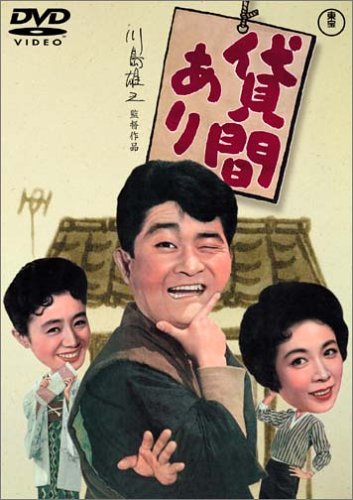 Yuzo Kawashima would have turned 100 in 2018. A comic tale of life on the Osakan margins, Room For Let is a perfect example of the director’s well known talent for satire and stars popular comedian Frankie Sakai as an eccentric writer/translator-cum-konnyaku-maker whose life is turned upside down when a pretty young potter moves into the building.
Yuzo Kawashima would have turned 100 in 2018. A comic tale of life on the Osakan margins, Room For Let is a perfect example of the director’s well known talent for satire and stars popular comedian Frankie Sakai as an eccentric writer/translator-cum-konnyaku-maker whose life is turned upside down when a pretty young potter moves into the building.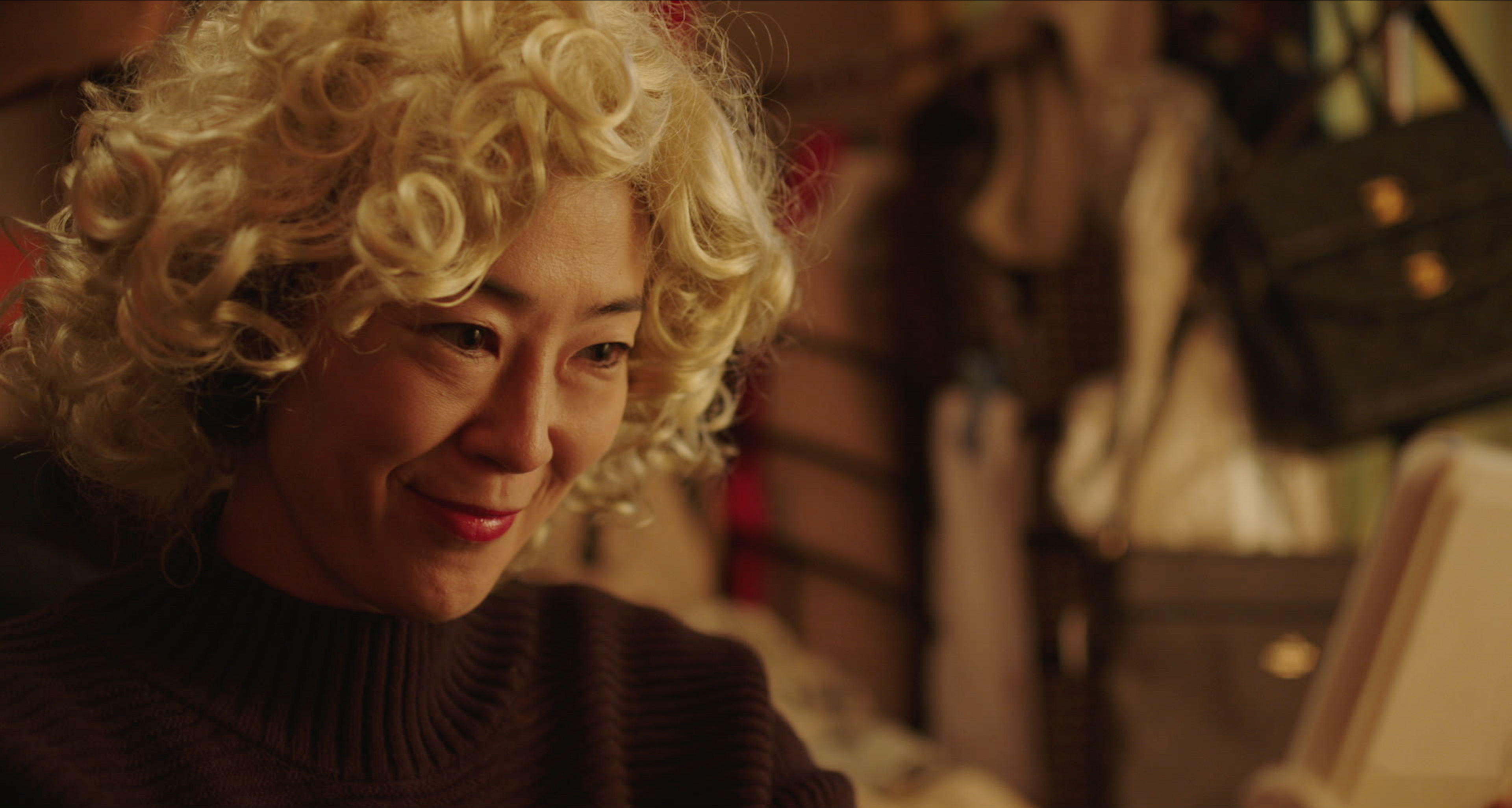 Embittered 55 year old OL Setsuko gets a new lease on life when introduced to an unusual English conversation teacher, John, who gives her a blonde wig and rechristens her Lucy. “Lucy” falls head over heels for the American stranger and decides to follow him all the way to the states…
Embittered 55 year old OL Setsuko gets a new lease on life when introduced to an unusual English conversation teacher, John, who gives her a blonde wig and rechristens her Lucy. “Lucy” falls head over heels for the American stranger and decides to follow him all the way to the states…  A remake of Korean hit
A remake of Korean hit  A small boy recruits the mysterious samurai “No Name” as a bodyguard after his dog is injured in an ambush in the landmark animation from 2007.
A small boy recruits the mysterious samurai “No Name” as a bodyguard after his dog is injured in an ambush in the landmark animation from 2007.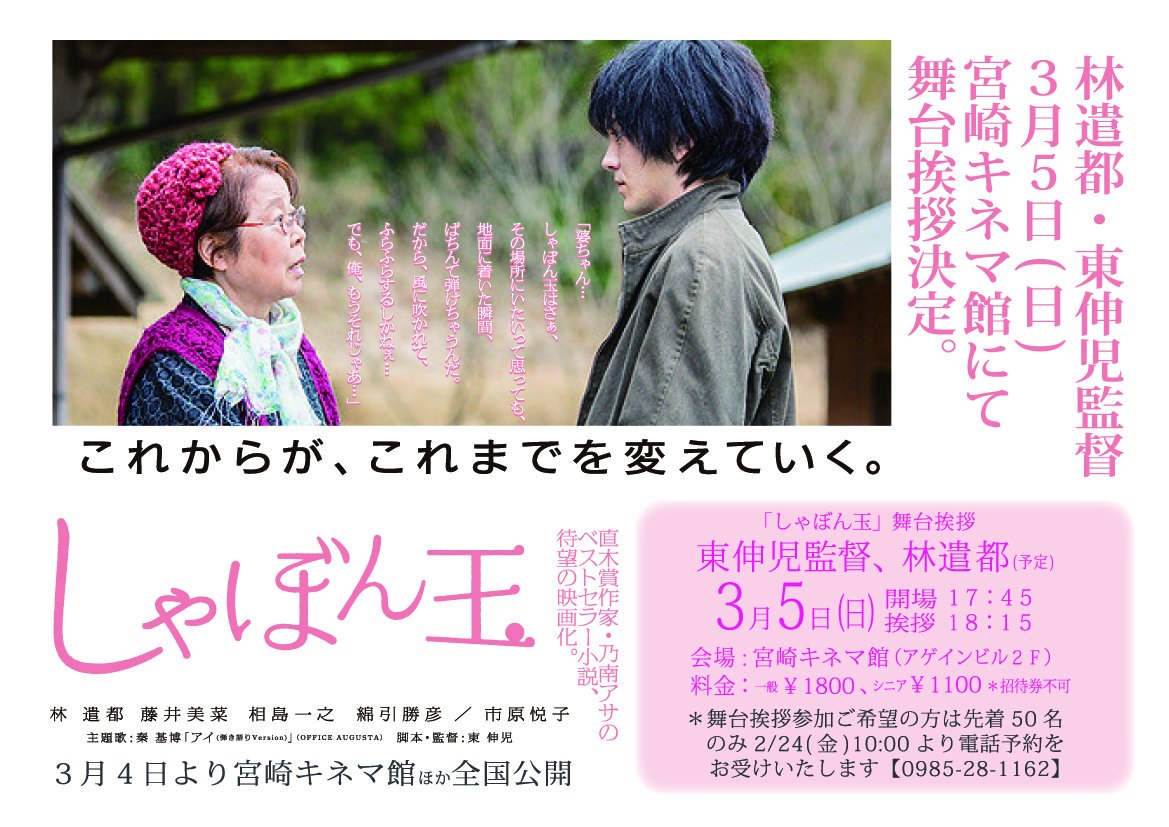 A no good lowlife makes his way by stealing from elderly women but experiences a change of heart when he’s taken in by a kindly old lady deep in the mountains.
A no good lowlife makes his way by stealing from elderly women but experiences a change of heart when he’s taken in by a kindly old lady deep in the mountains.
 Following the last series of
Following the last series of  Released in 2009, the second feature from Satoko Yokohama stars Kenichi Matsuyama as Yojin – an Aomori farm boy who lives on a slightly different plane of existence to everyone else. When a pretty school teacher (played by Kumiko Aso) arrives from Tokyo, Yojin becomes determined to win her heart, whatever the eventual costs may be!
Released in 2009, the second feature from Satoko Yokohama stars Kenichi Matsuyama as Yojin – an Aomori farm boy who lives on a slightly different plane of existence to everyone else. When a pretty school teacher (played by Kumiko Aso) arrives from Tokyo, Yojin becomes determined to win her heart, whatever the eventual costs may be! Also known as Ending Note, Mami Sunada’s documentary follows the last days of her father, a lifelong salaryman who retired aged 67 only to be diagnosed with terminal cancer soon after. Realising that he had only a short time left to live, Sunada began preparing for his death, creating his own bucket list and thinking about the “ending note” (a kind of personal testament) that he would leave behind for his family.
Also known as Ending Note, Mami Sunada’s documentary follows the last days of her father, a lifelong salaryman who retired aged 67 only to be diagnosed with terminal cancer soon after. Realising that he had only a short time left to live, Sunada began preparing for his death, creating his own bucket list and thinking about the “ending note” (a kind of personal testament) that he would leave behind for his family. Miwa Nishikawa whose
Miwa Nishikawa whose  Directly after the screening of Wild Berries, there will be a panel discussion examining the rise of female filmmakers over the last 15 years. Chaired by Kate Taylor – East Asian programmer for the BFI London Film Festival, the panel will also feature film scholar Jasper Sharp (co-founder of Midnight Eye, author of Behind the Pink Curtain), film researcher Alejandra Armendáriz Hernández, and the season’s curator, Irene Silvera.
Directly after the screening of Wild Berries, there will be a panel discussion examining the rise of female filmmakers over the last 15 years. Chaired by Kate Taylor – East Asian programmer for the BFI London Film Festival, the panel will also feature film scholar Jasper Sharp (co-founder of Midnight Eye, author of Behind the Pink Curtain), film researcher Alejandra Armendáriz Hernández, and the season’s curator, Irene Silvera.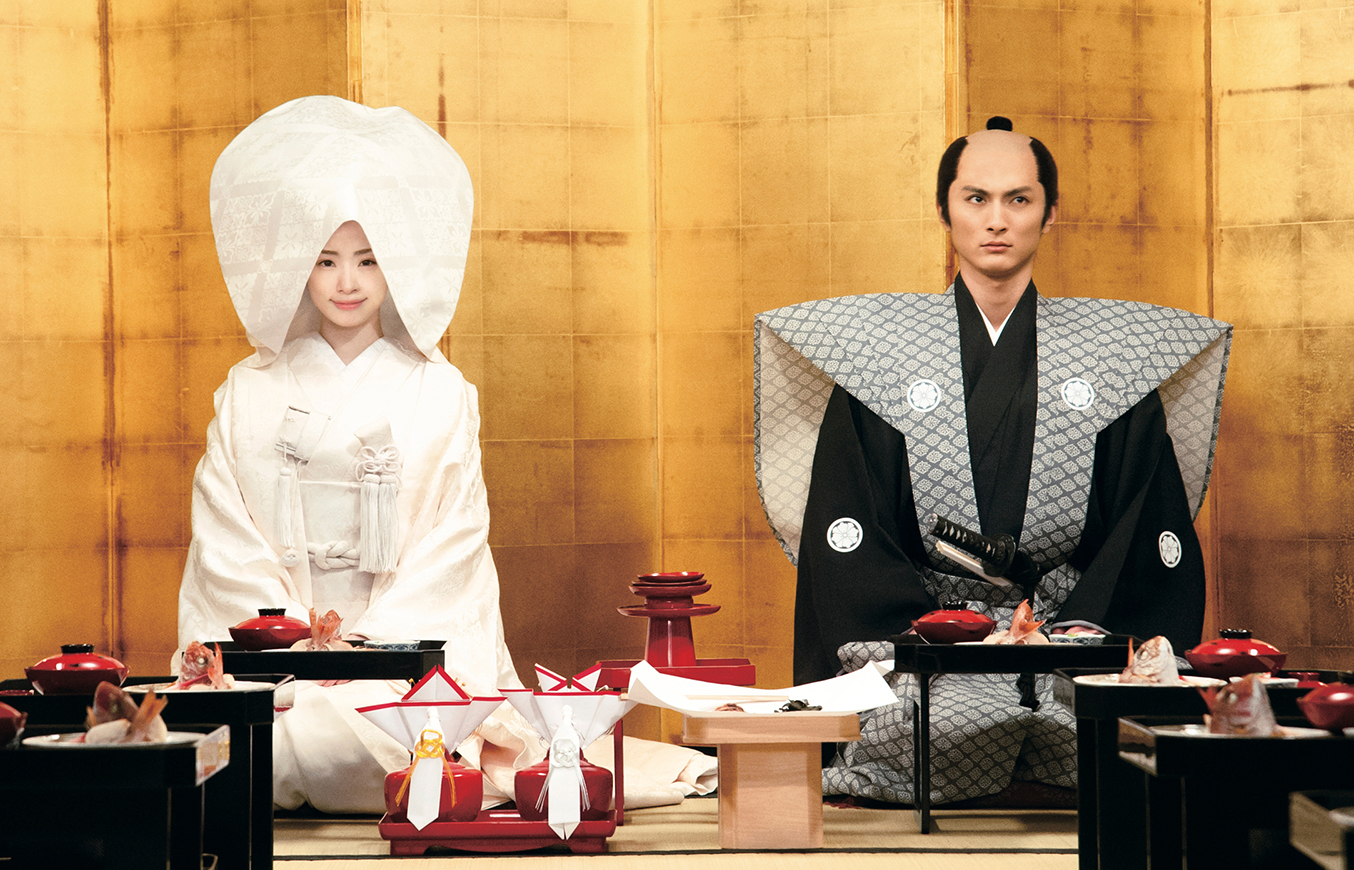 Following their
Following their 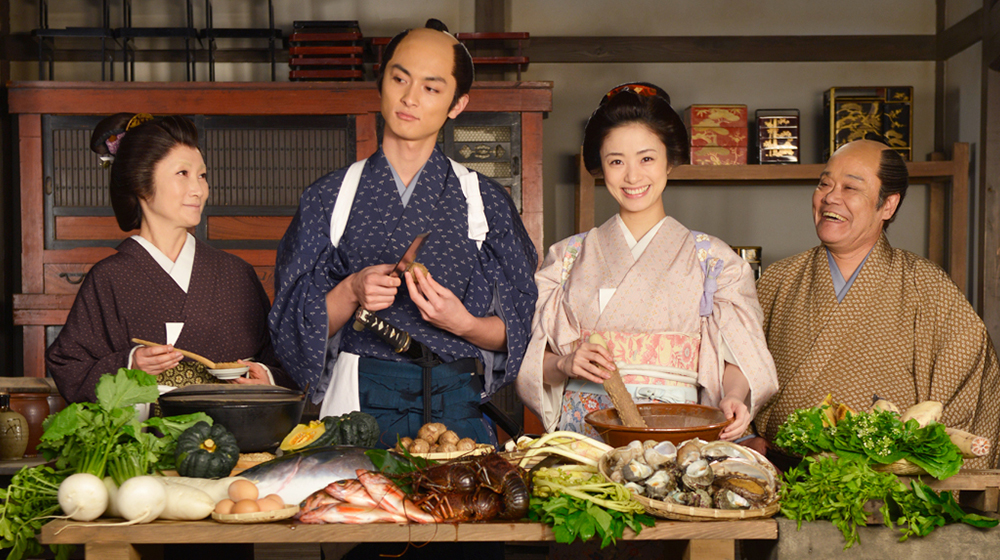 First up, A Tale of Samurai Cooking: A True Love Story proves that the way to a man’s heart is through his stomach (rather than through his chest with a sword). Headstrong Haru (Aya Ueto) gets “sent back” from her first marriage and then receives an interesting proposal from the Emperor’s own samurai cooks thanks to her awesome skills in the kitchen. Her husband to be, Yasunobu (Kengo Kora), is very unhappy about this seeing as he still wants to be a “real” samurai and is nursing a broken heart.
First up, A Tale of Samurai Cooking: A True Love Story proves that the way to a man’s heart is through his stomach (rather than through his chest with a sword). Headstrong Haru (Aya Ueto) gets “sent back” from her first marriage and then receives an interesting proposal from the Emperor’s own samurai cooks thanks to her awesome skills in the kitchen. Her husband to be, Yasunobu (Kengo Kora), is very unhappy about this seeing as he still wants to be a “real” samurai and is nursing a broken heart.  Based on the writings of the real Jun Nishimura, Shuichi Okita’s The Chef of South Polar follows a put upon chef as he’s forced to leave his family and become the sole cook for seven research scientists marooned at the South Pole for a whole year. Despite the hazardous conditions Nishimura keeps churning out beautifully presented dishes while the guys all go slowly mad together.
Based on the writings of the real Jun Nishimura, Shuichi Okita’s The Chef of South Polar follows a put upon chef as he’s forced to leave his family and become the sole cook for seven research scientists marooned at the South Pole for a whole year. Despite the hazardous conditions Nishimura keeps churning out beautifully presented dishes while the guys all go slowly mad together.  Naomi Kawase’s An (Sweet Bean) is a less comedic tale of inter-generational friendship, social injustice and continuing stigma towards those suffering illness, and a celebration of tradition passed from one era to the next. Masatoshi Nagase plays a struggling doriaki chef who gets a few tips from a strange old lady (Kirin Kiki). He originally turns her down for a job at his stand because of her age and gnarled hands, but tasting her bean paste, there is no way he can refuse.
Naomi Kawase’s An (Sweet Bean) is a less comedic tale of inter-generational friendship, social injustice and continuing stigma towards those suffering illness, and a celebration of tradition passed from one era to the next. Masatoshi Nagase plays a struggling doriaki chef who gets a few tips from a strange old lady (Kirin Kiki). He originally turns her down for a job at his stand because of her age and gnarled hands, but tasting her bean paste, there is no way he can refuse.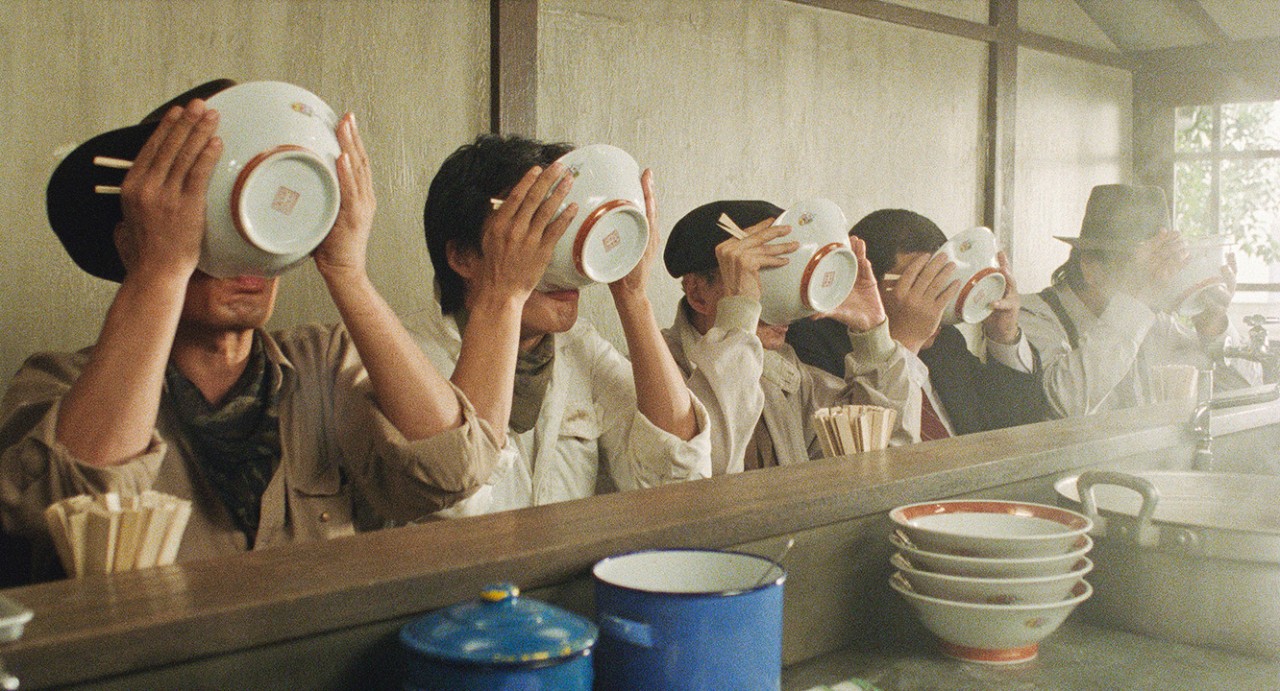 And finally the greatest food movie of them all – Juzo Itami’s Tampopo! This iconic comedy follows the titular widow as she tries to make a success of her ramen stand with the help of lonely truck drivers Goro and Gun. While Tampopo is busy with her noodles, Itami ventures off on a cultural odyssey to explore the various ways food is used and misused in Japanese society.
And finally the greatest food movie of them all – Juzo Itami’s Tampopo! This iconic comedy follows the titular widow as she tries to make a success of her ramen stand with the help of lonely truck drivers Goro and Gun. While Tampopo is busy with her noodles, Itami ventures off on a cultural odyssey to explore the various ways food is used and misused in Japanese society.  When it comes to the great Japanese artworks that everybody knows, the figure of Hokusai looms large. From the ubiquitous The Great Wave off Kanagawa to the infamous Dream of the Fisherman’s Wife, the work of Hokusai has come to represent the art of Edo woodblocks almost single handedly in the popular imagination yet there has long been scholarly debate about the true artist behind some of the pieces which are attributed to his name. Hokusai had a daughter – uniquely gifted, perhaps even surpassing the skills of her father, O-Ei was a talented artist in her own right as well as her father’s assistant and caregiver in his old age.
When it comes to the great Japanese artworks that everybody knows, the figure of Hokusai looms large. From the ubiquitous The Great Wave off Kanagawa to the infamous Dream of the Fisherman’s Wife, the work of Hokusai has come to represent the art of Edo woodblocks almost single handedly in the popular imagination yet there has long been scholarly debate about the true artist behind some of the pieces which are attributed to his name. Hokusai had a daughter – uniquely gifted, perhaps even surpassing the skills of her father, O-Ei was a talented artist in her own right as well as her father’s assistant and caregiver in his old age.
